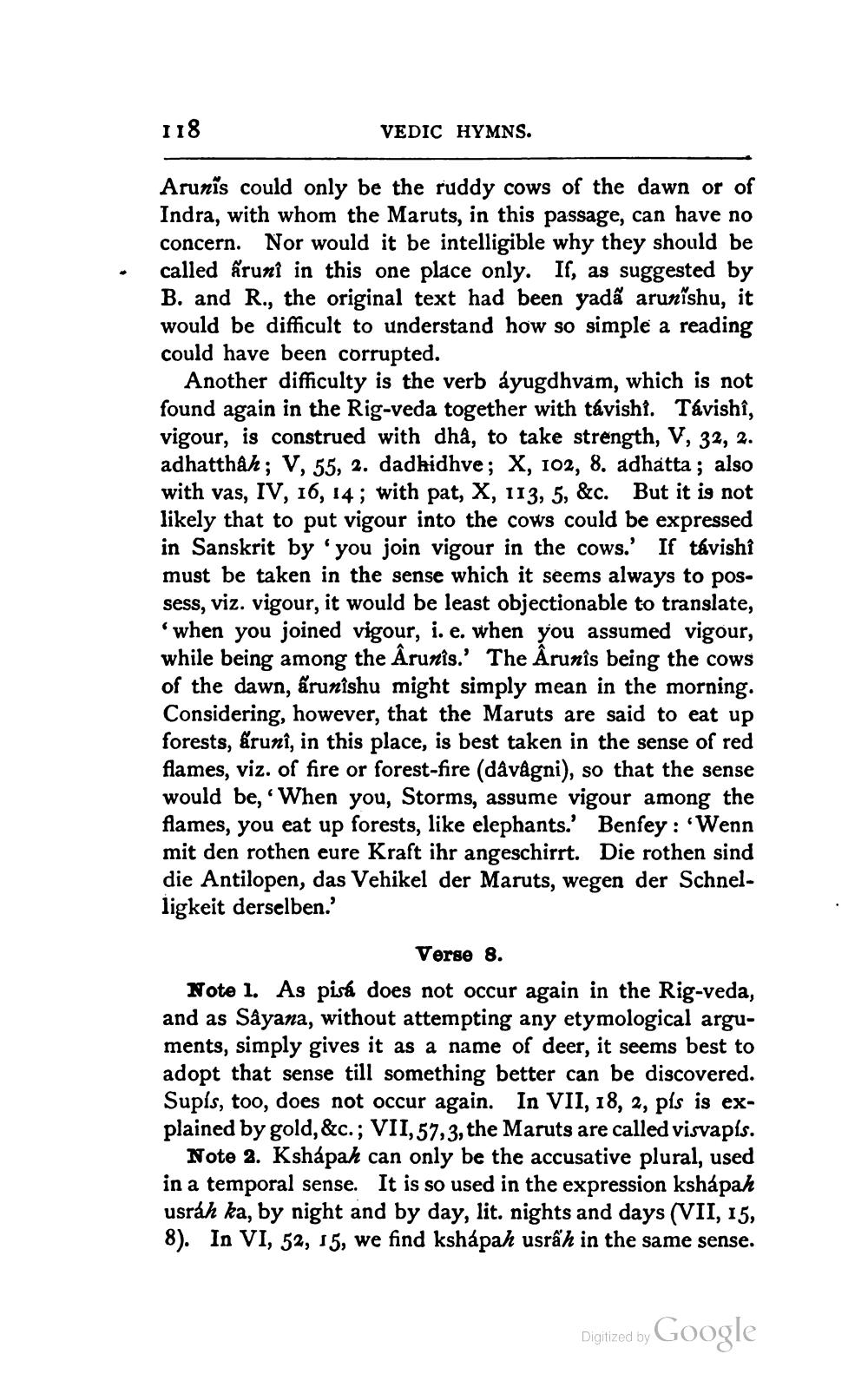________________
118
VEDIC HYMNS.
Arunis could only be the ruddy cows of the dawn or of Indra, with whom the Maruts, in this passage, can have no concern. Nor would it be intelligible why they should be called áruni in this one place only. If, as suggested by B. and R., the original text had been yada arunishu, it would be difficult to understand how so simple a reading could have been corrupted.
Another difficulty is the verb áyugdhvam, which is not found again in the Rig-veda together with távisht. Távishî, vigour, is construed with dha, to take strength, V, 32, 2. adhatthah: V. 55, 2. dadhidhve; X, 102, 8. adhatta; also with vas, IV, 16, 14; with pat, X, 113, 5, &c. But it is not likely that to put vigour into the cows could be exp in Sanskrit by 'you join vigour in the cows. If távishi must be taken in the sense which it seems always to possess, viz. vigour, it would be least objectionable to translate,
when you joined vigour, i. e. when you assumed vigour, while being among the Arunis.' The Ârunis being the cows of the dawn, árunîshu might simply mean in the morning. Considering, however, that the Maruts are said to eat up forests, áruni, in this place, is best taken in the sense of red flames, viz. of fire or forest-fire (dâvågni), so that the sense would be, When you, Storms, assume vigour among the flames, you eat up forests, like elephants.' Benfey: "Wenn mit den rothen eure Kraft ihr angeschirrt. Die rothen sind die Antilopen, das Vehikel der Maruts, wegen der Schnelligkeit derselben.'
Verse 8. Note 1. As pisá does not occur again in the Rig-veda, and as Sayana, without attempting any etymological arguments, simply gives it as a name of deer, it seems best to adopt that sense till something better can be discovered. Supis, too, does not occur again. In VII, 18, 2, pís is explained by gold, &c.; VII,57,3, the Maruts are called visvapis.
Note 2. Kshápah can only be the accusative plural, used in a temporal sense. It is so used in the expression kshápah usrah ka, by night and by day, lit. nights and days (VII, 15, 8). In VI, 52, 15, we find kshápah usrấh in the same sense.
Digitized by
Digitized by Google




